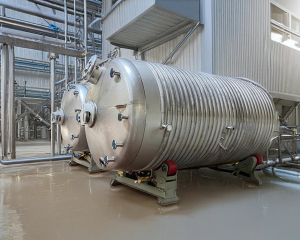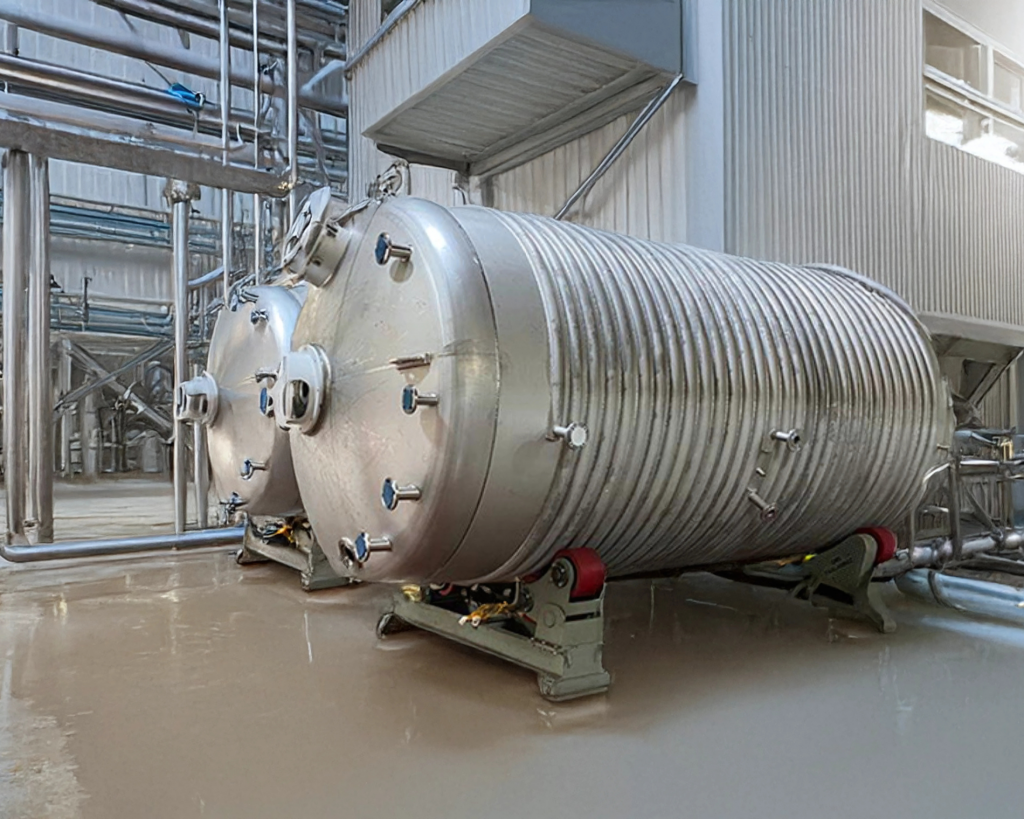A coil reactor is a type of reactor that uses serpentine-shaped tubes to increase heat transfer and ensure a homogeneous mixture. These types of reactors are widely used in the chemical, food, pharmaceutical, and energy sectors.
Structure and Operating Principle of a Coil Reactor
Coil reactors consist of a main body where the reaction takes place and serpentine tubes located inside or outside this body. The serpentine tubes can be supplied with a cooling or heating fluid to provide heat transfer during the reaction.
- Heat Transfer: Temperature control is important for the reaction to proceed efficiently. The coils remove or add heat through the fluid circulating within the reaction vessel.
- Mixing and Efficiency: Serpentine structures help the fluids inside the reactor to be distributed homogeneously, thus ensuring a more balanced reaction.
- Energy Efficiency: It offers the ability to operate at an optimal temperature by consuming less energy.

Applications of Coil Reactors
- Chemical Industry: Petrochemicals, polymer production, organic synthesis processes.
- Food Industry: Milk pasteurization, sugar production, beverage processing.
- Pharmaceutical Sector: Chemical syntheses, biotechnological productions.
- Energy Production: Processes such as biodiesel production, hydrogen production.
Advantages of Coil Reactors
- High Heat Transfer Capacity: Ensures a more stable reaction progression thanks to temperature control.
- Homogeneous Mixture: Reduces side reactions by providing better mass transfer within the reactor.
- Modular Design: Can be adapted to different production capacities.
- Durability: Provides long-lasting use with corrosion-resistant materials.
Coil reactors offer highly effective solutions, especially in chemical processes that require heat control. Different materials and designs can be preferred according to the area of use and the type of reaction.
For More Detailed Information Click Here.


